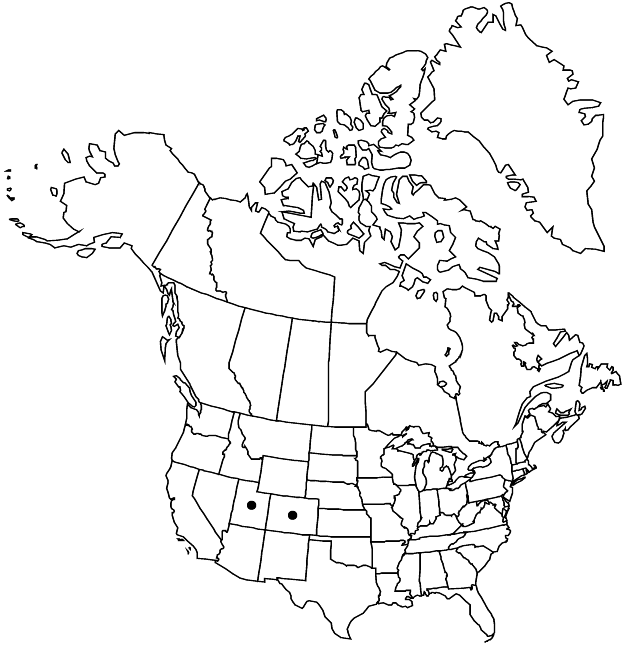Difference between revisions of "Rumex pycnanthus"
Repert. Spec. Nov. Regni Veg. 38: 372. 1935.
FNA>Volume Importer |
FNA>Volume Importer |
||
| Line 29: | Line 29: | ||
|elevation=1700-3000 m | |elevation=1700-3000 m | ||
|distribution=Colo.;Utah. | |distribution=Colo.;Utah. | ||
| − | |discussion=<p>Rumex pycnanthus was reported (as R. subalpinus M. E. Jones) from White Pine County, Nevada (Mont E. Lewis 1973) and may occur in that state; according to J. T. Kartesz (1987, vol. 1), that record was based on misidentification of R. californicus.</p> | + | |discussion=<p><i>Rumex pycnanthus</i> was reported (as R. subalpinus M. E. Jones) from White Pine County, <i>Nevada</i> (Mont E. Lewis 1973) and may occur in that state; according to J. T. Kartesz (1987, vol. 1), that record was based on misidentification of <i>R. californicus</i>.</p> |
|tables= | |tables= | ||
|references= | |references= | ||
| Line 53: | Line 53: | ||
|publication year=1935 | |publication year=1935 | ||
|special status= | |special status= | ||
| − | |source xml=https://jpend@bitbucket.org/aafc-mbb/fna-data-curation.git/src/ | + | |source xml=https://jpend@bitbucket.org/aafc-mbb/fna-data-curation.git/src/8f726806613d60c220dc4493de13607dd3150896/coarse_grained_fna_xml/V5/V5_1058.xml |
|subfamily=Polygonaceae subfam. Polygonoideae | |subfamily=Polygonaceae subfam. Polygonoideae | ||
|genus=Rumex | |genus=Rumex | ||
Revision as of 17:35, 18 September 2019
Plants perennial, glabrous or indistinctly papillose-pubescent, with fusiform or creeping horizontal rhizome. Stems erect, branched above middle (only in inflorescence), 60–100 cm. Leaves: ocreae deciduous or partially persistent at maturity; blade normally oblong-lanceolate, 20–45 × 8–10 cm, normally more than 3 times as long as wide, base broadly cuneate, truncate, or weakly cordate, margins entire, flat or indistinctly crisped, apex obtuse or broadly acute. Inflorescences terminal, occupying distal 1/2 of stem, often dense, narrowly paniculate. Pedicels articulated in proximal 1/2, occasionally almost near base, filiform, 3–11 mm, articulation indistinct or weakly evident. Flowers 10–20 in whorls; inner tepals ovate-deltoid or ovate-triangular, 4–7 × 3–5 mm, widest at or near base, base truncate or weakly emarginate, margins erose to minutely dentate at least near base, apex narrowly acute; tubercles absent. Achenes deep brown to reddish brown, 3–4 × 1.5–2.2 mm. 2n = 120.
Phenology: Flowering late spring–summer.
Habitat: Along streams and rivers in montane, subalpine, and alpine zones
Elevation: 1700-3000 m
Discussion
Rumex pycnanthus was reported (as R. subalpinus M. E. Jones) from White Pine County, Nevada (Mont E. Lewis 1973) and may occur in that state; according to J. T. Kartesz (1987, vol. 1), that record was based on misidentification of R. californicus.
Selected References
None.
